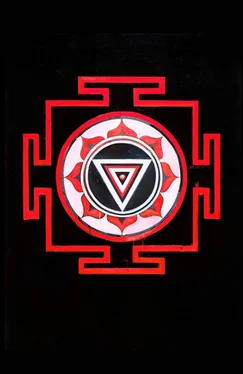For his part, Johnny enjoyed the leadership role, and when all else failed to resolve a dispute, he went with his heart, declared a holiday in the slum, and threw a party.
His system worked, and was popular. There were people who’d moved into that slum because there was a pretty good party every other week to settle a dispute peacefully. People brought disputes from other slums, to have them resolved by Johnny. And little by little, the boy born on the pavement was Solomon to his people.
‘Arun! Get down to the mangrove line with Deepak!’ he shouted. ‘That flood wall collapsed yesterday. Get it up again, fast! Raju! Take the boys to Bapu’s house. The old ladies in his lane have no plastic on the roof. Those fucking cats pulled it off. Bapu has the sheets. Help him get them up. The rest of you, keep clearing those drains! Jaldi! ’ Fast!
The tea arrived, and Johnny sat down to drink with me.
‘Cats,’ he sighed. ‘Can you explain to me why there are cat people in this world?’
‘In a word? Mice. Cats are handy little devils.’
‘I guess so. You just missed Lisa and Vikram. Has she seen your face like this?’
‘No.’
‘Hell, man, she’s gonna have a fit, yaar. You look like somebody ran over you.’
‘Thanks, Johnny.’
‘Don’t mention,’ he replied. ‘Hey, that Vikram, he doesn’t look too good either. He’s not sleeping well, I think.’
I knew why Vikram didn’t look too good. I didn’t want to talk about it.
‘When do you think?’ I asked, looking at the black, heaving clouds.
The smell of rain that should-but-wouldn’t fall was everywhere in my eyes, in my sweat, in my hair: first rain, the perfect child of monsoon.
‘I thought it would be today,’ he replied, sipping at his tea. ‘I was sure.’
I sipped my tea. It was very sweet, laced with ginger to defeat the heat that pressed down on every heart in the last days of the summer. The ginger soothed the cuts on the inside of my mouth, and I sighed with pleasure.
‘Good chai, Johnny,’ I said.
‘Good chai,’ he replied.
‘Indian penicillin,’ I said.
‘There is… there is no penicillin in this chai, baba,’ Johnny said.
‘No, I mean -’
‘We never put penicillin in our tea,’ he declared.
He seemed offended.
‘No, no,’ I reassured him, knowing that I was heading down a dead-end street. ‘It’s a reference to an old joke, a joke about chicken soup, a joke about chicken soup being called Jewish penicillin.’
Johnny sniffed at his tea charily.
‘You… you smell chickens in the tea?’
‘No, no, it’s a joke. I grew up in the Jewish part of my town, Little Israel. And, you know, it’s a joke everybody tells, because Jewish people are supposed to offer you chicken soup, no matter what’s wrong with you. You’ve got an upset stomach, have a little chicken soup . You’ve got a headache, have a little chicken soup . You’ve just been shot, have a little chicken soup . And in India, tea is like chicken soup for Jewish people, see? No matter what’s wrong, a strong glass of chai will fix you up. Geddit?’
His puzzled frown cleared in a half-smile.
‘There’s a Jewish person not far from here,’ he said. ‘He stays in the Parsi colony at Cuffe Parade, even though he’s not a Parsi. His name is Isaac, I believe. Shall I bring him here?’
‘Yes!’ I replied excitedly. ‘Get the Jewish person, and bring him here!’
Johnny rose from his stool.
‘You’ll wait for me here?’ he asked, preparing to leave.
‘No!’ I said, exasperated. ‘I was joking, Johnny. It was a joke ! Of course I don’t want you to bring the Jewish person here.’
‘It’s really no trouble,’ he said.
He stared at me, bewildered, trapped a half-step away, uncertain whether he should fetch Isaac-the-Jewish-person or not.
‘So… ’ I said at last, looking at the sky for an escape from the conversational cul-de-sac, ‘when do you think?’
He relaxed, and scanned the clouds churning in from the sea.
‘I thought it would be today,’ he replied. ‘I was sure.’
‘Well,’ I sighed, ‘if not today, tomorrow. Okay, can we do this now, Johnny?’
‘ Jarur ,’ he replied, moving toward the low doorway of his hut.
I joined him inside, closing the flimsy plywood door behind me. The hut, made of thin, tatami-style matting strung to bare bamboo poles, was paved on the bare earth with extravagantly detailed and coloured tiles. They formed a mosaic image of a peacock, with its tail fanned out against a background of trees and flowers.
The cupboards were filled with food. The large, metal, rat-proof wardrobe was an expensive and much-prized item of furniture in the slum. A battery-powered music system occupied a corner of a metal dresser. Pride of place went to a three-dimensional illustration of the flogged and crucified Christ. New floral-print mattresses were rolled up in a corner.
The traces of relative luxury attested to Johnny’s status and commercial success. I’d given him the money as a wedding present, to buy a small, legal apartment in the neighbouring Navy Nagar district. The gift was intended to allow him to escape the uncertainty and hardship of life in the illegal slum.
Aided by the enterprising spirit of his wife Sita, the daughter of a prosperous chai shop owner, Johnny used the apartment as collateral for a loan, and then rented it out at a premium. He used the loan to buy three slum huts, rented the three illegal huts at market rates, and was living in exactly the same slum lane where I’d first met him.
Moving a few things aside, Johnny made a place for me to sit. I stopped him.
‘Thanks, brother. Thanks. I don’t have time. I have to find Lisa. I’ve been one step behind her all day long.’
‘Lin brother, you’ll always be one step behind that girl.’
‘I think you’re right. Here, take this.’
I gave him the bag of medicines that Lisa had given me, and pulled a wad of money bound with tight elastic bands from my pocket. It was enough to pay two months’ wages for the two young men who worked as first aid attendants in the free clinic. There was also a surplus to cover the purchase of new bandages and medicines.
‘Is there anything special?’
‘Well… ’ he said, reluctantly.
‘Tell me.’
‘Anjali – Bhagat’s daughter – she went for the exams.’
‘How’d she do?’
‘She came top. And not just top of her class, mind you, but top of the whole Maharashtra State.’
‘Smart kid.’
I remembered the little girl she was, years ago, when she’d helped me from time to time in the free clinic. The twelve-year-old kept the names of all the patients in the slum in her head, hundreds of names, and became a friend to every one of them. In visits to the clinic in the years since, I’d watched her learn and grow.
‘But smart is not enough in this, our India,’ Johnny sighed. ‘The Registrar of the university, he is demanding a baksheesh of twenty thousand rupees.’
He said it flatly, without rancour. It was a fact of life, like the diminishing numbers of fish in fishermen’s nets, and the daily increase of cars, trucks and motorcycles on the roads of the once genteel Island City.
‘How much have you got?’
‘Fifteen thousand,’ he replied. ‘We collected the money from everyone here, from all castes and religions. I put in five thousand myself.’
It was a significant commitment. I knew Johnny wouldn’t see that money repaid in anything less than three years.
I pulled a roll of American dollars from my pocket. In those days of the rabid demand for black market money, I always carried at least five currencies with me at any one time: deutschmarks, pounds sterling, Swiss francs, dollars and riyals. I had about three hundred and fifty dollars in notes. At black market rates it was enough to cover the shortfall in Anjali’s education bribe.
Читать дальше












